Sliding doors are a wonderful feature in any home. They’re easy to operate, let in a lot of natural light, offer great views, and because they don’t require space to swing open and closed like hinged doors, sliding doors allow for more usable space.
However, despite their benefits, sliding doors pose a significant problem: they’re poor sound barriers. Primarily constructed of glass and featuring gaps where they overlap, sliding doors allow a lot of exterior noise to filter into your home; interior noise escapes through them, too.
As such, you may find that your home is filled with unwanted noises and feel as if your privacy is diminished. Fortunately, there are ways that you can soundproof sliding doors (albeit, doing so is a bit more challenging than soundproofing traditional hinged doors).
The purpose of soundproofing is to either prevent noise from leaving or entering a space. The process involves using materials that minimize or absorb sound. In order to implement the most effective solution, you must first understand the two different types of sound.
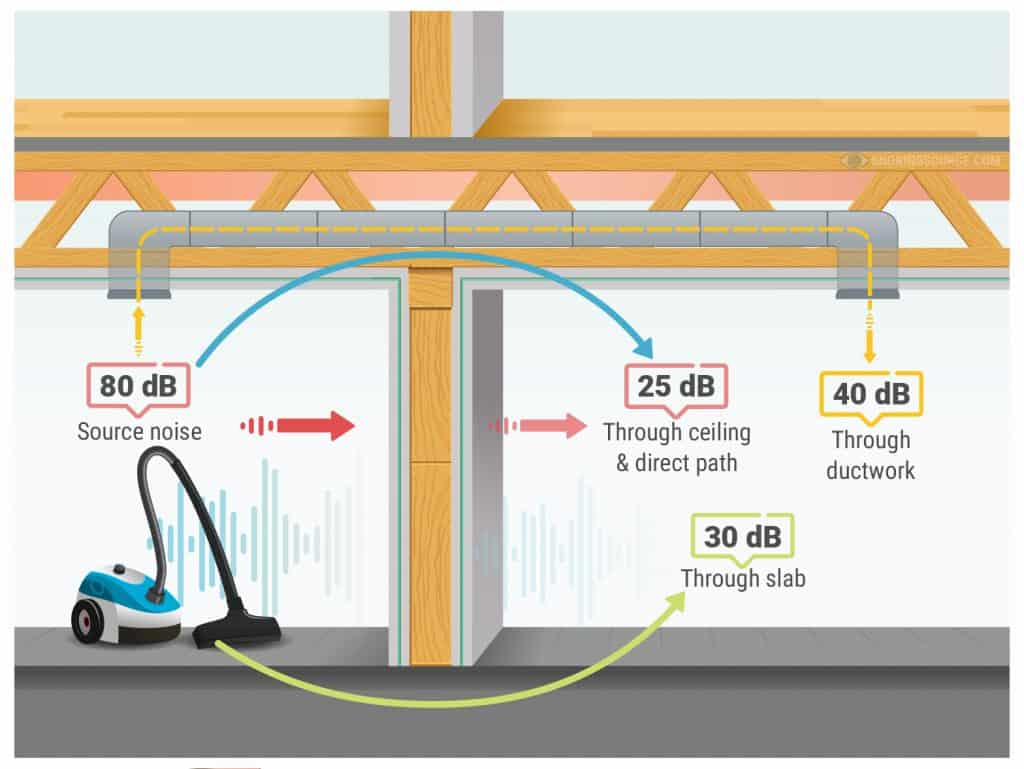
Any type of sound that is transmitted through the air is considered airborne noise; common examples include speech, music, sounds from a television, traffic, and barking dogs.
With airborne noise, the soundwaves that are created by an object are picked up and transmitted through the air. Those soundwaves then crash into a solid object, such as a sliding door.
The collision creates a vibration, and the vibration passes through the door and into the area behind it. This transmission of soundwaves is the reason why neighbors talking, dogs barking, kids playing, horns honking, and other exterior noises can be heard through your sliding doors as if those activities were occurring inside your home.
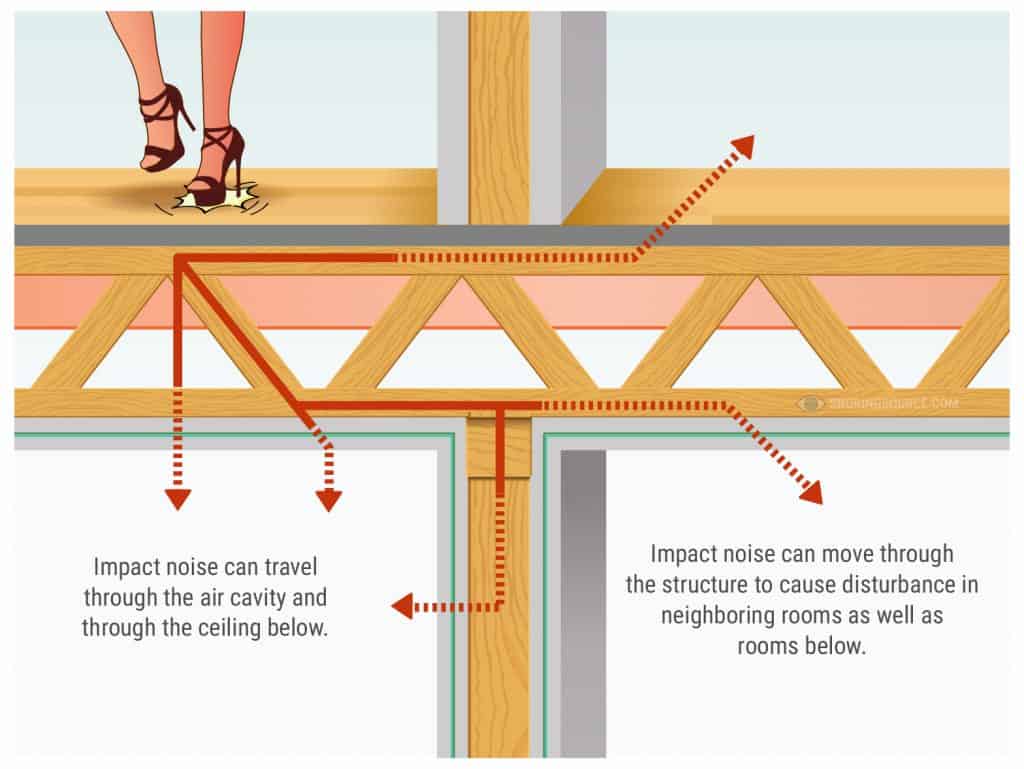
The second type of sound is referred to as structure-borne noise, also known as impact noise. This type of noise occurs when an object makes impact with a structure.
For example, if a ball were to hit into your sliding door, the resulting sound is structure-borne noise. The impact of the ball causes both sides of the structure – in this case, your sliding doors – to vibrate, and that vibration creates soundwaves.
Each type of noise requires different techniques to eliminate. Therefore, it’s important to isolate the type of sound you want to combat. To do so, when you hear sound passing through your sliding door, place a hand on the surface of the door. If the sound causes a vibration, it’s impact noise; if it doesn’t, it’s airborne.
As mentioned, soundproofing a sliding door is more challenging than soundproofing a standard hinged door. One reason is because these doors are primarily comprised of glass, which is thinner than a standard wood door, and thus requires more materials to effectively prevent the transmission of noise.
Another reason why soundproofing sliding doors is difficult is because of how they function. Because they slide, covering them with heavy material will affect the operation of the doors; also, covering them with dense materials will impact the aesthetic appeal.
With that said, however, there are ways that you can effectively soundproof a sliding door without impacting the functionality or the aesthetics of the structure. Below, we cover a few options to consider.
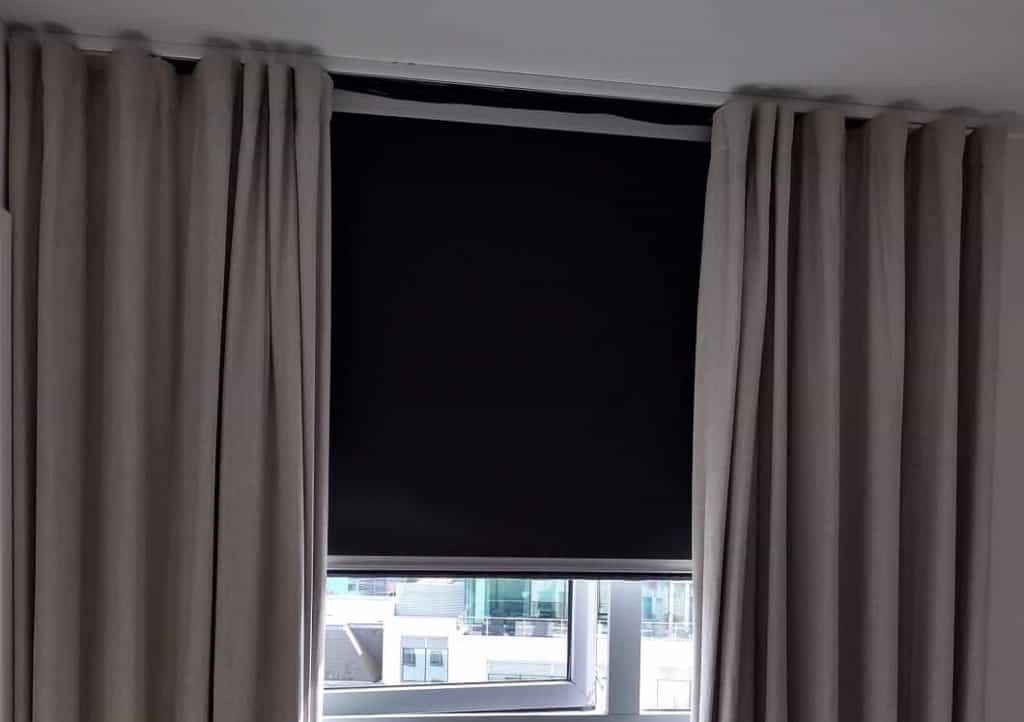
Perhaps the easiest way to minimize the transfer of sound through sliding doors is with soundproof curtains. These curtains are made of dense fabrics that are intended to absorb soundwaves.
While they won’t reduce the volume of the sound source, they do make the sound fade a lot faster, which means that the space beyond the sliding doors will be a lot more peaceful. In other words, soundproof curtains deaden the echoes caused by soundwaves, thus reducing the amount of unwanted noise.
Soundproofing curtains do more than minimize noise; they also provide thermal insulation. That is, they prevent heat transfer, so they’ll block hot air from entering the room through the sliding doors in the summer and cold air in the winter.
They also prevent heated and cooled air from exiting your home through the sliding doors. The thermal insulation qualities of soundproof curtains means that the space will not only be quieter, but it will also be more comfortable. Plus, they improve the energy efficiency of your home and can help you save on your utility bills.
Soundproof curtains are available in a variety of sizes, colors, and patterns, so you should be able to find something that will tie in with the look of your room.
To ensure the curtains will cover the door, make sure to take proper measurements so you purchase the right size. To use soundproof curtains, simply hang them from a curtain rod secured over the door.
To maximize soundproofing, consider doubling up on the panels. To do so, hang a double curtain rod. Once installed, hang soundproof curtains on both rods.
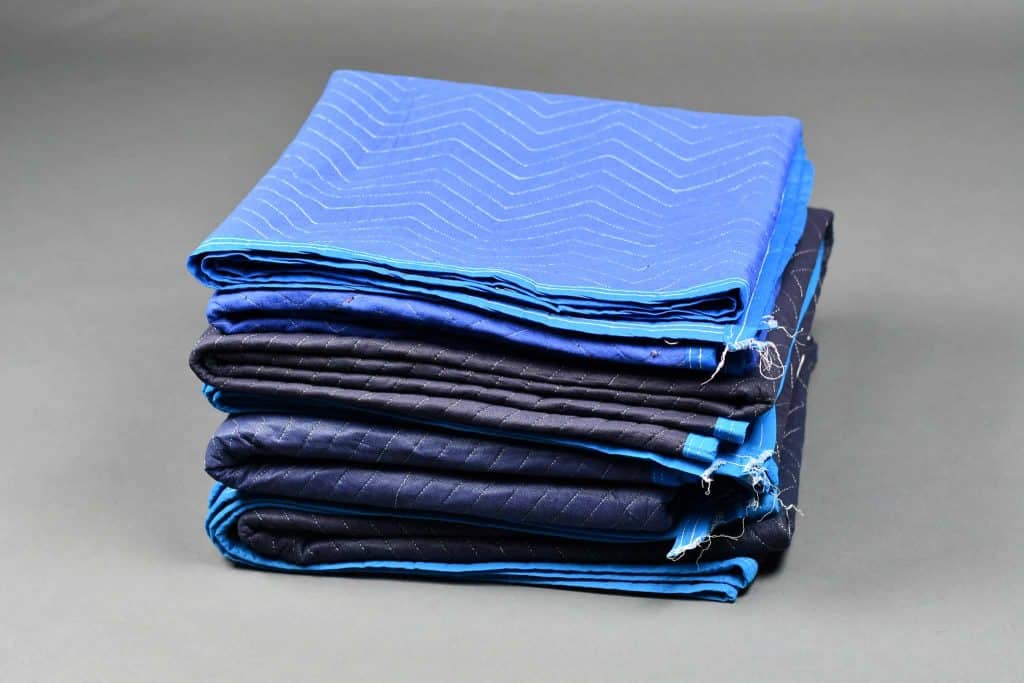
Another option is to hang sound deadening blankets over your sliding doors. This method works similar to the above-mentioned method, but in lieu of curtains, you would hang sound deadening blankets.
While the method is similar, it may actually be more effective than soundproof curtains. That’s because the blankets are made of fiberglass, which is one of the most effective soundproofing materials available. Not only do sound deadening blankets block out airborne noise, but they can also prevent the passage of soundwaves caused by structure-borne noise.
Fiberglass sound deadening blankets are available in an assortment of sizes, so make sure to measure your sliding door. There are two ways that you can hang the blankets:
While sound deadening blankets will help to prevent sound transmission, there is a catch: they aren’t exactly attractive.
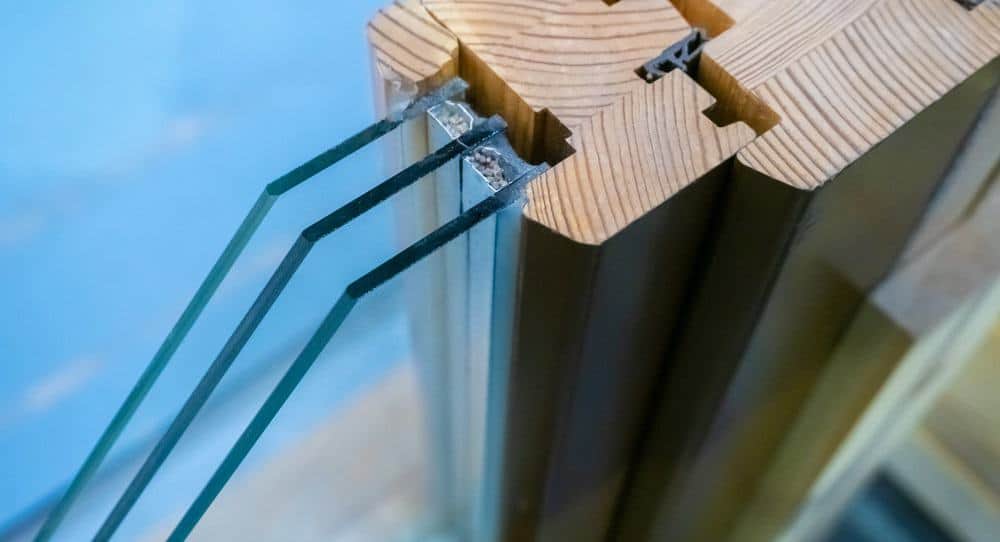
The most expensive option is to invest in triple-pane or laminated glass for the sliding door. If you currently have single or even double pane glass, making the upgrade could be worth your money.
When it comes to soundproofing windows or glass in general, you need to have an understanding of low and high frequency sounds.
Low frequency sounds are easier to soundproof for. Examples include bass from a car stereo or thunder from a storm.
High frequency sounds are harder to block like birds chirping or a baby crying.
Triple pane or Laminated glass works by creating dead space between the panes which results in a deadening of these sounds.
Another added benefit is better insulation for heat and cold transfer. This results in a reduction in energy costs.
Both of the soundproofing methods described above can minimize the noise that transfers through your sliding doors.
To reduce standard, medium-level sounds, we’d suggest using soundproof curtains; however, if you want to block out louder sounds – including impact and airborne – sound deadening blankets are a better option.

Snoringsource.com is a participant in the Amazon Services LLC Associates Program, an affiliate advertising program designed to provide a means for website owners to earn advertising fees by advertising and linking to amazon(.com, .co.uk, .ca etc) and any other website that may be affiliated with Amazon Service LLC Associates Program.